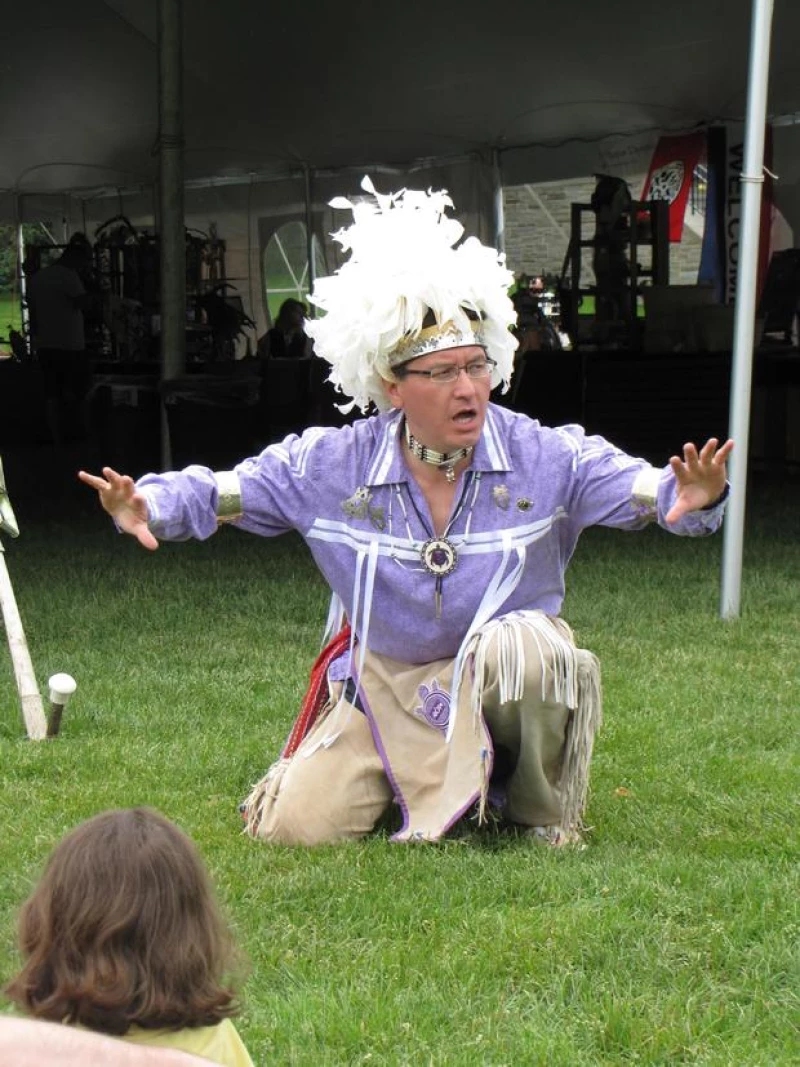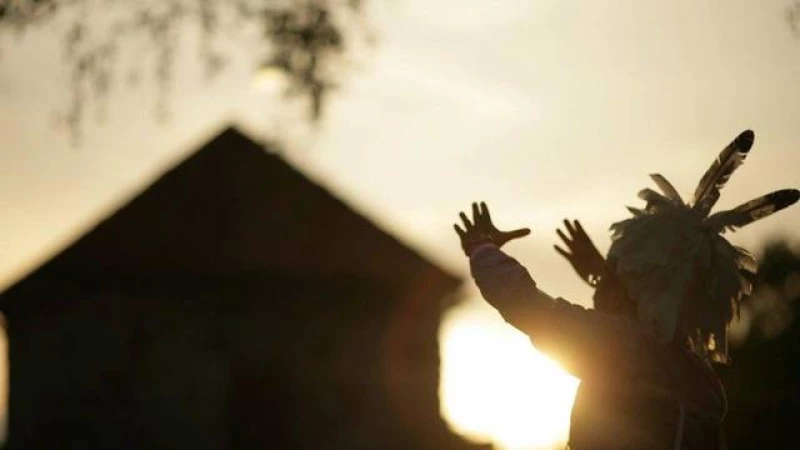Native American Storyteller Challenges Thanksgiving Narratives
Native American storyteller Perry Ground, a Turtle Clan member of the Onondaga Nation, is taking a different approach to Thanksgiving by encouraging people to question commonly held beliefs about the holiday. Ground, with 25 years of storytelling experience, aims to promote cultural understanding and shed light on Native American history.
Ground believes that the popularized version of the "First Thanksgiving" in 1621 has distorted perceptions of Native Americans. He emphasizes that the three-day feast was a singular event involving only one tribe, yet it has come to represent the entire Native American experience. Ground hopes to challenge this narrative by sharing a more nuanced understanding of what truly transpired during that time.

In his efforts to promote a rethinking of Thanksgiving, Ground highlights the devastating impact that settlers had on native tribes upon their arrival in North America. He believes that by amplifying the voices of Native Americans, a more accurate and comprehensive understanding of history can be achieved.
To engage his audience, Ground has created a 21-question quiz that delves into various aspects of the "First Thanksgiving." The quiz challenges common assumptions about the feast, the reasons behind the holiday's national recognition, and the true nature of the interaction between Pilgrims and Native Americans.
Reimagining Thanksgiving: Dispelling Myths and Honoring Native American Resilience
Many respondents don't know the answers. They also don't realize how little Native Americans had to do with the "creation of Thanksgiving," said Ground. He tries to widen their perspective by sharing the history and dispelling the myths surrounding the holiday through story.
In 1621, Pilgrims shared a feast with the Wampanoag people, which was recounted in a letter written by settler Edward Winslow. He wrote, "we exercised our arms, many of the Indians coming amongst us, and amongst the rest their greatest king Massasoit, with some ninety men, whom for three days we entertained and feasted."
From those few lines rose the myth surrounding the relationship between Native Americans and settlers. The interaction was presented as a rosy story instead of talking about the outcome and the effects on the native community, said Joshua Arce, president of Partnership With Native Americans, one of the largest Native-led nonprofits in the U.S.
Arce, a member of the Prairie Band Potawatomi Nation, said Thanksgiving for many Native Americans is "a day of resilience, of mourning – and a day of survival."
Cooperation and peace between the native tribes and the settlers after the feast was short-lived. Throughout the period of European colonization, millions of Native Americans were killed, either in fighting or by disease. Between 80% and 95% of the Native American population died within the first 100-150 years of European contact with the Americas, researchers estimate.
Reimagining Thanksgiving: Honoring Native American Heritage
It was after "The Trail of Tears," when Native Americans were forcibly displaced from their homelands following the 1830 Indian Removal Act (with over 10,000 dying on the brutal trek) that Thanksgiving became a holiday. President Abraham Lincoln made a proclamation in 1863 that Thanksgiving was to be regularly commemorated each year on the last Thursday of November. On Dec. 26, 1941, President Franklin D.
Roosevelt signed a resolution establishing the fourth Thursday in November as the federal Thanksgiving Day holiday.
Arce said the struggle for the native community is to "reconcile what happened then to now." November is a time of harvest and part of the natural cycle when communities prepare for winter. For Arce, incorporating seasonal elements important to native communities and their distinct traditions into Thanksgiving can help honor their survival and resilience.
For Ground, storytelling is the way to learn about Native American cultures and traditions, and he wants his audience to engage through different techniques, like his quiz.
In addition to his "Rethinking Thanksgiving" presentation, he also tells stories about different Native American myths and legends, because while communities have evolved, "we also have these traditions and ideas that are important to us."
For Ground, Thanksgiving shouldn't be the only time people should think about Native Americans. "We are human beings that have a continuum of history and we continue to exist today," he said.







